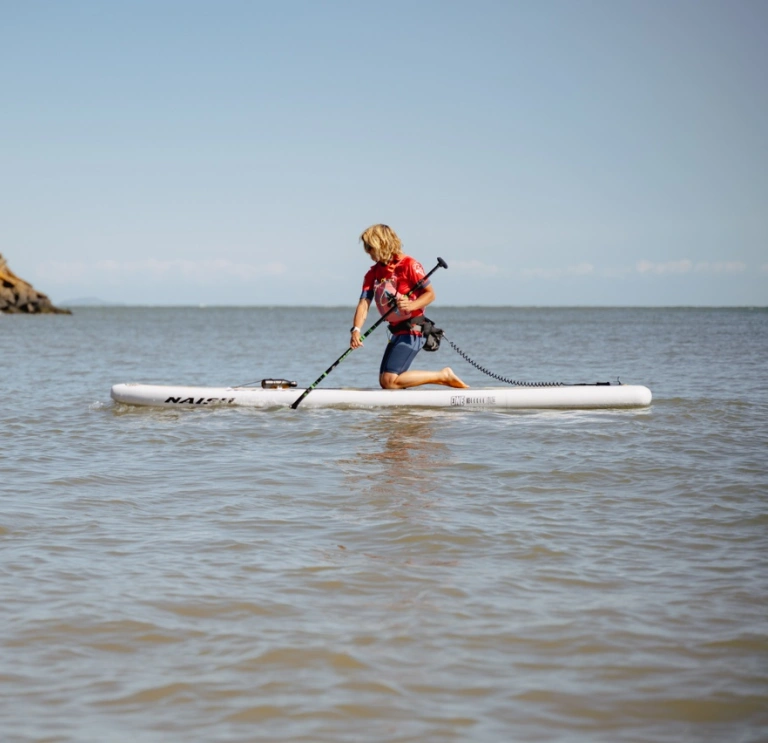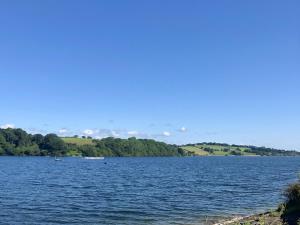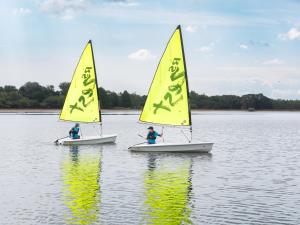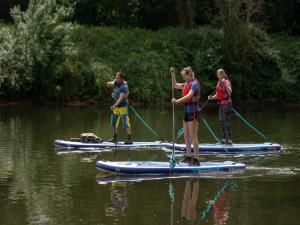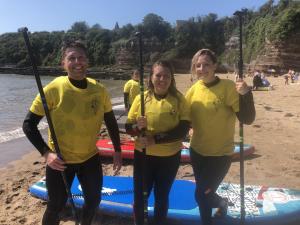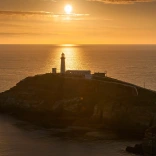Wales is a land of wild waters, packed with deep lakes and ribbons of rivers and fringed by miles of rugged coastline dotted with islands and hidden lagoons. The best way to get up close and personal with these heavenly bodies of water? Paddle power. Stand up paddleboarding, officially the UK’s fastest-growing watersport, is easy to master – and it might just be the perfect way to explore Wales waterways and waves from up close.
So what exactly is paddleboarding?
SUP-ing (which stands for stand up paddleboarding) involves standing up on a large board and using a paddle to propel yourself forwards. Simple! You can SUP on a flat river or lake, which is easy to get the hang of, or ride waves on the sea, which is trickier to master and involves a smaller board.
Stand up paddleboarding might seem like one of the newest active sports on the block, and it’s true that it’s recent hit in the UK, exploding in popularity the 2000s and with more fans than ever today (there are now over 500,000 regular paddleboarders in Britain, and sales of boards increased 15-fold in 2020). But the art of standing on water has actually been around for many years. Hawaiians have been practicing SUP for centuries – they just called it Hoe He’e Nalu back then.
SUP-ing is great fun, easy for beginners to try and an eco-friendly way to explore, and it’s even been proved to be good for you, too. Paddling provides a cardio hit and strengthens your arm muscles, balancing on your board is a great workout for your core and spending time in nature gives the brain an endorphin boost and can even reduce stress and anxiety.
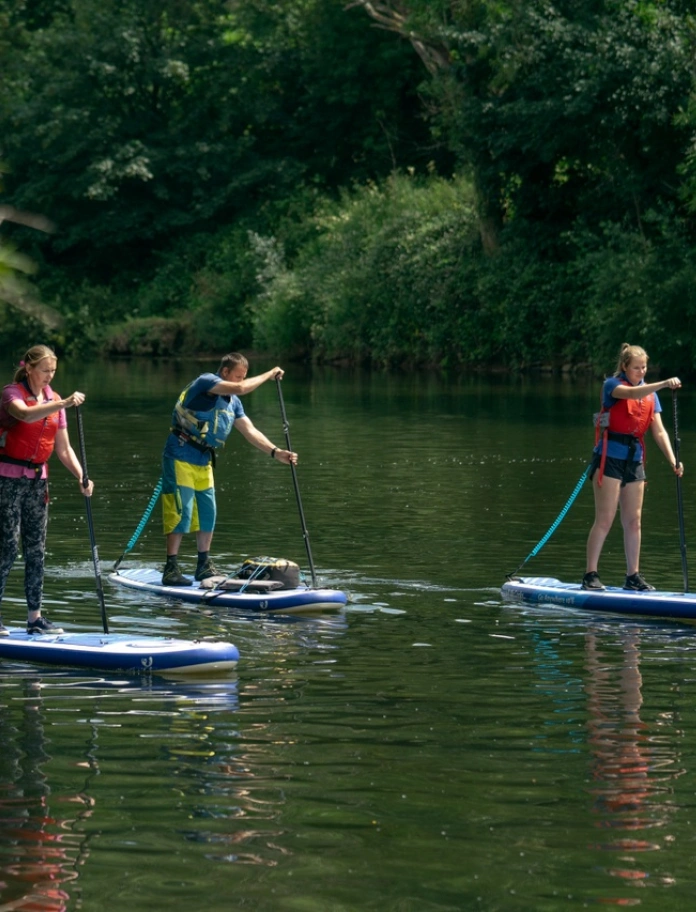
Tempted to try it?
Whether you go inland or explore the coast, Wales is a wonderful place to find your feet on a SUP. Sign up for an introductory session with an accredited activity provider – there are plenty of brilliant SUP organisations in Wales ready to take you out safely in beautiful spots.
Island SUP run friendly 2-hour Introduction to SUP courses in the calm waters of Jackson’s Bay on Barry Island, as well as improver sessions that’ll help you master turning on your board and help you to gain confidence out on the water.
In a beginner-friendly SUP session your instructor will get you started on flat water, showing you how to carry your board using the central handle and then to attach the leash to your ankle. From here, you’ll learn how to get on and kneel in the centre of the board – use the handle as a guide and place your knees on each side of it. Insert the paddle in the water in front of you and then pull it back alongside your body.
To stand up, place your palms in front of you, draw your knees off the board and slowly come to standing, picking up your paddle as you do so. To keep your SUP on an even keel, take a few strokes with the paddle on one side, then a few strokes on the other. That’s it – now you’re paddleboarding!
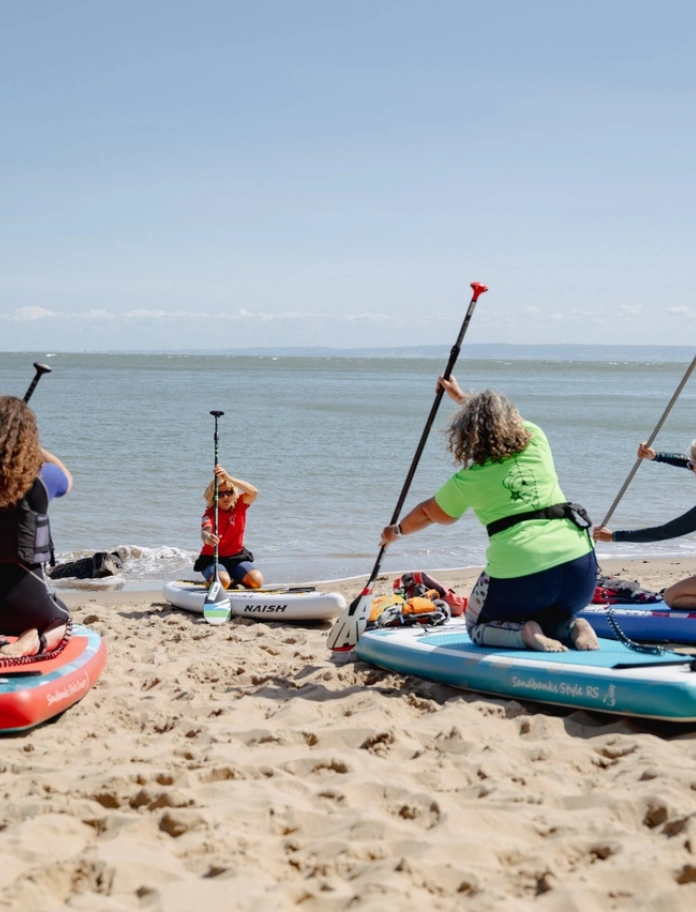
Paddling safely
There are a few safety essentials to keep in mind as you learn, which is why beginners should always give SUP-ing a try with an accredited activity provider. They’ll also kit you out safely with a warm wetsuit and a buoyancy vest in case you fall in the water. All SUPs come with an ankle leash – this means that if you do take an unexpected dip in the water (which is likely to happen as you find your balance, so don’t worry!), you can easily retrieve your board and climb back on. Sea SUPs designed for waves usually have straight leashes, SUPs for flat water have coiled leashes (which aren’t suitable for use in surf, because they can spring back).
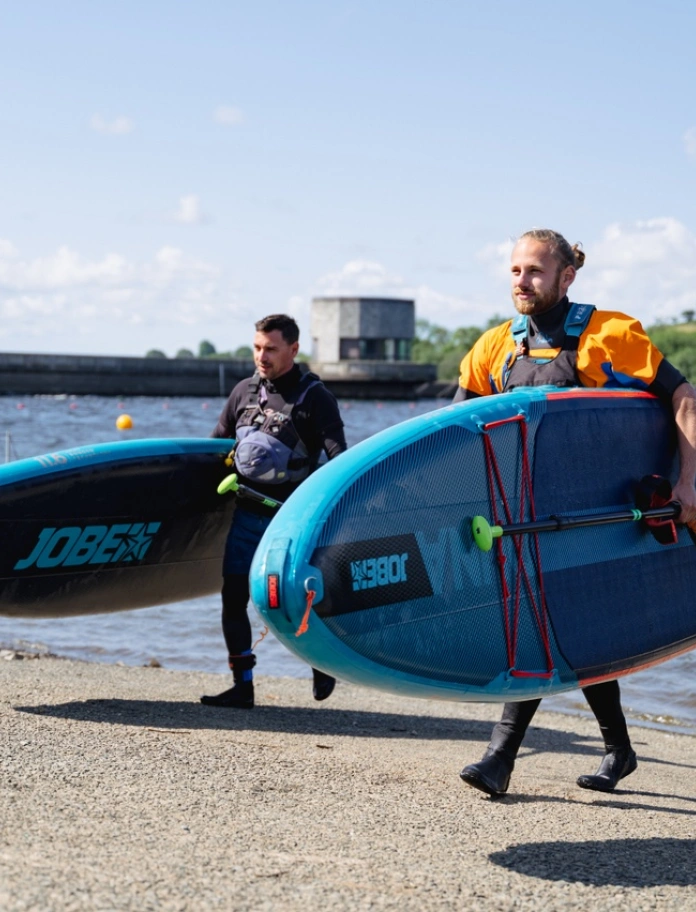
Where to SUP in Wales
There are many coastal and inland activity providers offering instruction and exploration. Dwr Cymru provide lessons at four of their reservoirs with water activity centres; Llys-y-frân Lake in Pembrokshire, Llandegfedd Reservoir in Monmouthshire, Llyn Brenig Lake in Denbighshire and Llanishen and Lisvane Reservoirs in Cardiff offers a number of activities including SUP. Once you've got to grips withe the basics, if you're keen to develop your skills and buy your own kit, there's also the option to self launch.
For a river based paddle, Inspire2Adventure provide lessons while exploring the River Wye in the stunning Wye Valley, Monmouthshire.
If the coast is calling you, in South Wales, the small, secluded, sandy cove of Jackson’s Bay, Barry is great spot for first timers to get to grips with the basics under the supervision of Island SUP.
Inspire2Adventure and Island SUP
Once you’ve given paddling a go there's plenty more standout places to stand up paddleboard with stunning coastline and scenic waters to discover.
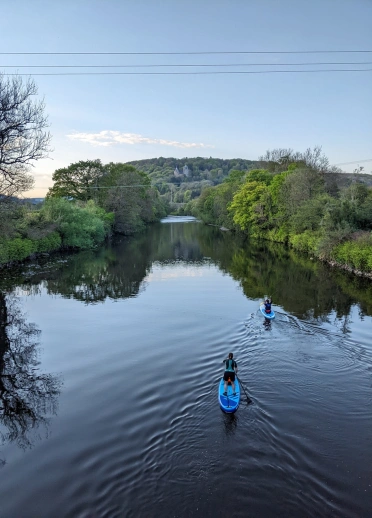
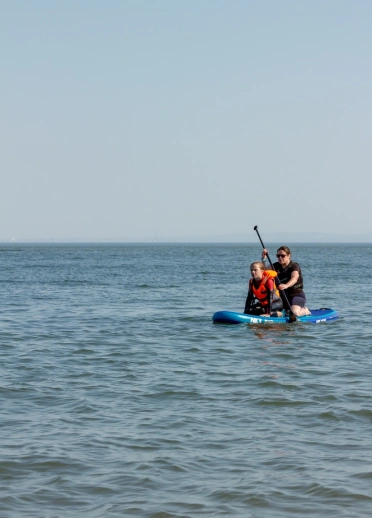
Be safe!
Exploring the outdoors is fantastic fun and provides great opportunities for adventurous activities, but please read up on the risks and make sure you are prepared.
- Carry a means of calling for help on you
- Wear an appropriate leash and flotation device
- Check weather forecast and tide times
- Follow these tips from the RNLI for staying safe on the Welsh coast,
- Make sure you are fully prepared for your outing with AdventureSmart's top tips for enjoying stand up paddleboarding safely.

